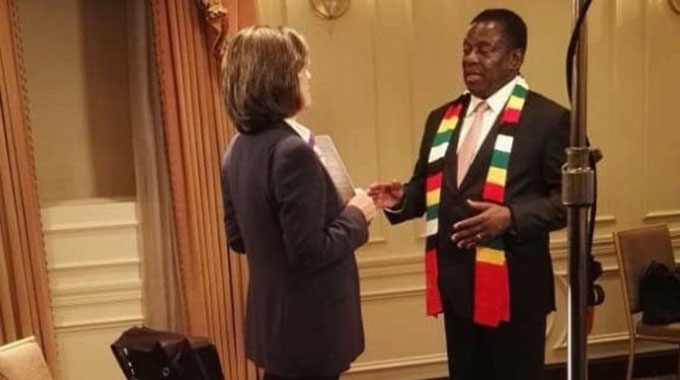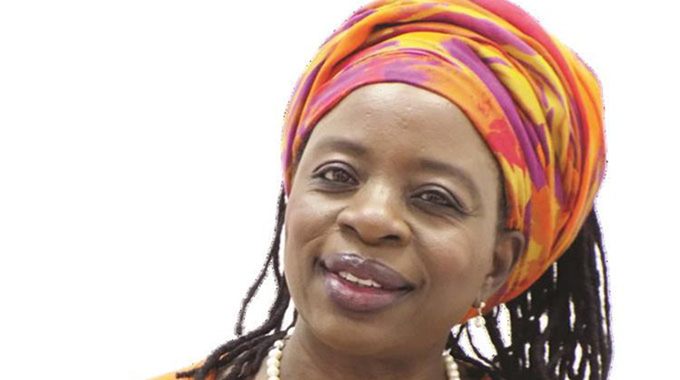Zim and the ‘new’ multilateralism

Francis Mupazviriho Correspondent
At the occasion of the Zimbabwe Research Day, at Oxford University in 2005, two notable scholars, Professors Hasu Patel and Stephen Chan held a bruising conversation on Zimbabwe’s foreign policy since 1980.
Patel is a renowned professor with the University of Zimbabwe’s Political and Administrative Studies Department and former ambassador to Canberra till 2000, while Chan hails from the University of London’s School of Oriental Studies where his interests on Zimbabwe include democracy and elections.
While the subject of discussion was broadly on foreign policy, the duo located issues relating to Harare’s previous standoff with Britain, the land question, Zimbabwe’s contribution to international peacekeeping missions, the Look East policy’s previously articulated economic thrust in 1992 and its exposition in the aftermath of the pull-out from the Commonwealth, in 2003.
Patel’s delivery, which became the basis for subsequent discussions, touched on the role of Zimbabwe’s liberation struggle and its residual effect to the politics of solidarity, nationalism, Pan-Africanism, non-aggression and non-interference and multilateralism, among many others.
While Chan submitted an understanding of Zimbabwe’s history and post-independence alignments, he however, submitted that the orientation had largely become “antiquated”, needing a shifting strategy to cope with the emerging economic realities of diplomacy — something which the duo both agreed on, as a way of concluding remarks.
For Zimbabwe, which has undergone changes with a bearing on the country’s foreign policy, the nation stands at the cusp of history, with a huge responsibility to move in line with the new contemporary realities of diplomacy.
In the cardinal month of September, which bears the biggest international relations excursion, Zimbabwe joined other member states to the 73rd Session of the United Nations General Assembly.
The interest on Zimbabwe was quite palpable, as seen largely through CNN host Christine Amanpour’s interview with President Mnangagwa.
Bloomberg had another interview and held similar engagements with members of the delegation, especially Minister Mthuli Ncube.
Given the leadership change which occurred, it was inevitable that Amanpour would try to draw parallels between President Mnangagwa and his predecessor, Mr Robert Mugabe who became synonymous with fiery speeches especially in the last two decades.
The Herald’s Political Editor Tichaona Zindoga and analyst Richard Mahomva dealt with this “anti-imperialistic rhetoric” of the past and I will not dwell on it.
In his maiden speech, the theme of Zimbabwe being open for business was articulated again.
This marked a continuation of this theme and another which runs as a corollary — “economy first, politics later”, all which have given a new orientation towards multilateralism, especially in the economic sense.
While President Mnangagwa also delved on African inclusion in the Security Council (and on the non-permanent members) and further articulated the question of the Sahrawi Arab Democratic Republic’s independence, which have been fundamentally important lines at the General Assembly, these issues did not obscure the trade and investment issues.
The theme of imperial aggression was replaced by a lexicon of coexistence and constructive engagement.
The question of dialogue and negotiation was captured in Zimbabwe’s relationships with the International Monetary Fund, the World Bank and the World Trade Organisation.
Moving in line with the agenda which substantially focused on human security issues as opposed to the propensity towards hard power politics, Zimbabwe identified issues of climate change; poverty and inequality, fighting non-communicable diseases and inclusion of women, youth, children and vulnerable groups.
Though Zimbabwe has always subscribed to multilateralism since independence as demonstrated by its membership of regional, continental and multilateral bodies, it however, turned susceptible to the very same institutions especially due to the “friends” and “enemies” dichotomy of the past two decades.
Given the yesteryear tendencies, Zimbabwe’s new emphasis on multilateralism is notable. This chorus has been apparent in Operation Restore Legacy.
However, this shifting strategy was apparently looming in the background in the past three years, as Zimbabwe established that it indeed needed to modernise and industrialise, firstly as a common national goal and secondly in line with SADC, AU and even the UN’s operating guidelines on the same.
President Mnangagwa’s interview with the CCTV in 2015 (as Vice President), on a state visit to Beijing, typifies the point.
Since November 2017, a lot of positives have occurred. The first was been the goodwill from the British (and several other nations) who have sent their envoys to Harare, in the process clinching an opportunity to salvage relations to the new frontier of economic cooperation, which is without doubt the new game in town and globally.
The continuing discussions on readmission to the Commonwealth is equally positive to new realities. It is a departure from attaching these bodies to “colonial strangleholds”, a familiar line which has largely been raised especially towards francophone countries.
Zimbabwe must continue widening its foreign policy options for strategic reasons. Despite the historical issues emanating from colonialism, there is need for increased dialogue and interaction between the states.
Any relationship will no doubt be defined by the economic imperatives, just as seen by the continuing impasse between China and the United States of America.
For Harare, its multilateral leanings even to business now is a remarkable incentivisation towards the formerly enunciated Look East policy which was located in the previous environment. The strategic leanings of course heightened in 2008, as Beijing and Moscow co-vetoed a decision to impose more sanctions against Harare.
Of course, the relations with these two nations continue, with emphasis now towards the economic front, since the political fundamentals have always been solid.
Zimbabwe must dialogue and consolidate its statecraft on the negotiating table, where interests compete at the bilateral level and any other.
It is true that multilateralism is guided by the pursuit of common objectives guided by international organisations and protocols while of course the state’s interests must be located in the very same environment.
At the continental level, the African Union’s Extraordinary Summit on the Africa Continental Free Trade (AfCFTA) held in Kigali earlier in the year, typifies the continuing agenda.
In these multilateral opportunities, Zimbabwe’s position is strengthened, given the vision, which Presidents Paul Kagame and Cyril Ramaphosa equally articulated in New York, often with reference to Zimbabwe.
This shows new structural relations emerging to the realities around, while riding on the sound political ties.
For Harare, which has expressed political will towards trade and investment, lessons have been forthcoming. Rwanda, through its CEO of the Rwanda Development Board, came to Harare and shared best practices on the experiences of her nation.







Comments